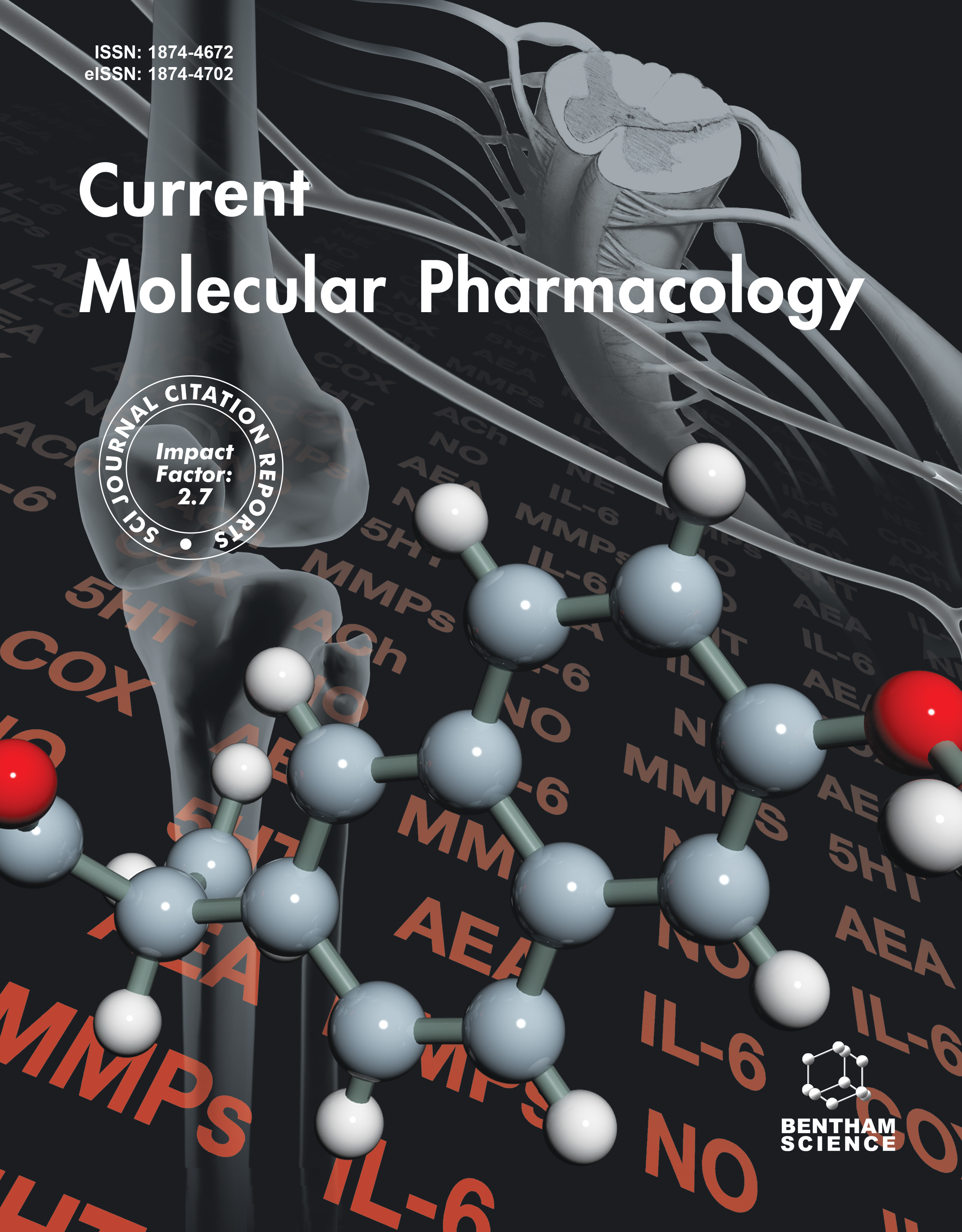Current Molecular Pharmacology - Volume 14, Issue 6, 2021
Volume 14, Issue 6, 2021
-
-
Curcumin Efficacy in a Serum/Glucose Deprivation-Induced Neuronal PC12 Injury Model
More LessBackground: Glucose/serum deprivation (GSD), has been used for understanding molecular mechanisms of neuronal damage during ischemia. It has been suggested that curcumin may improve neurodegenerative diseases. Aim: In this study, the protective effects of curcumin and its underlying mechanisms were investigated in PC12 cells upon GSD-induced stress. Methods: PC12 cells were cultured in DMEM overnight and then incubated in GSD condition for either 6 or 12h. GSD-treated cells were pretreated with various concentrations of curcumin (10, 20, and 40 μM) for 5h. The cell viability, apoptosis, reactive oxygen species (ROS) level, oxidative stress, expression of apoptosis-related genes, and IL-6 were determined. Results: Curcumin increased cell viability and caused an anti-apoptotic effect in PC12 cells exposed for 12h to GSD . Curcumin also increased antioxidant enzyme expression, suppressed lipid peroxidation, and decreased interleukin-6 secretion in PC12 cells subjected to GSD. In addition, pretreatment with curcumin down-regulated pro-apoptotic (Bax), and up-regulated antiapoptotic (Bcl2) mediators. Conclusion: Curcumin mitigates many of the adverse effects of ischemia, and therefore, should be considered as an adjunct therapy in ischemic patients.
-
-
-
Suppression of Molecular Targets and Antiproliferative Effect of Citronellal on Triple-Negative Breast Cancer Cells
More LessAuthors: Kaneez Fatima and Suaib LuqmanBackground: Triple-Negative Breast Cancer (TNBC) requires targeted therapies to better manage and prevent metastatic mammary gland tumors. Due to the resistance problem associated with the approved drugs, researchers are now focusing on phytochemicals for the treatment of TNBC as they possess pleiotropic mode of action and fewer side effects. Objective: To investigate the antiproliferative effect of citronellal on triple-negative breast cancer cells. Methods: Anticancer potential of citronellal was explored by employing SRB, MTT, and NRU antiproliferative assay. Further, the effect of citronellal was observed on molecular targets (Tubulin, COX-2, and LOX-5) utilizing in vitro and in silico methods. Furthermore, the efficacy of citronellal was examined on Ehrlich Ascites Carcinoma cells. In addition, the safety profiling of it was observed at 300 and 1000 mg/kg of body weight in mice. Results: Citronellal suppresses the growth of MDA-MB-231 cells by more than 50% in NRU assay and ~41% and 32% in SRB and MTT assay, respectively. Further, citronellal's effect was observed on molecular targets wherein it suppressed LOX-5 activity (IC50 40.63±2.27 μM) and prevented polymerization of microtubule (IC50 63.62 μM). The result was more prominent against LOX-5 as supported by molecular docking interaction studies, but a non-significant effect was observed at the transcriptional level. The efficacy of citronellal was also determined in Ehrlich Ascites Carcinoma (EAC) model, wherein it inhibited the growth of tumor cells (45.97%) at 75 mg/kg of body weight. It was non-toxic up to 1000 mg/kg of body weight in mice and did not cause significant lysis of erythrocytes. Conclusion: These observations could provide experimental support for citronellal to be used as a chemopreventive agent for breast cancer.
-
Most Read This Month


